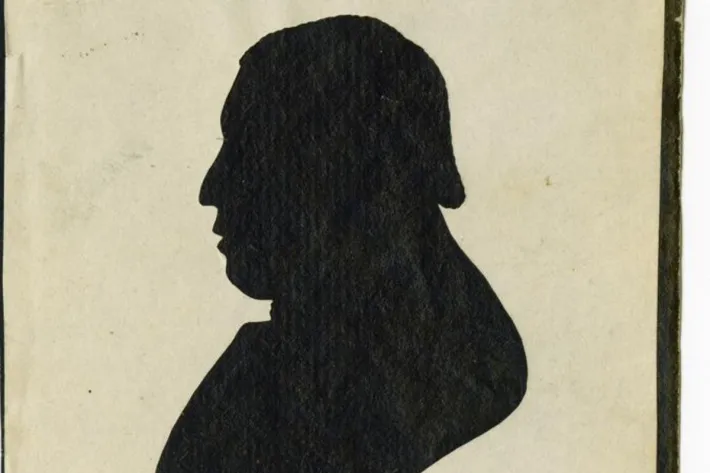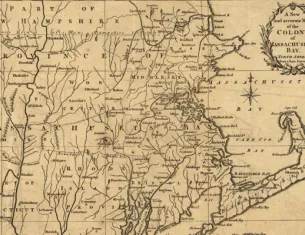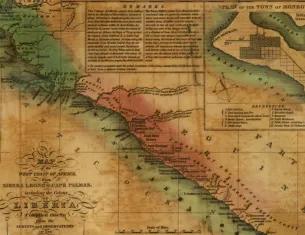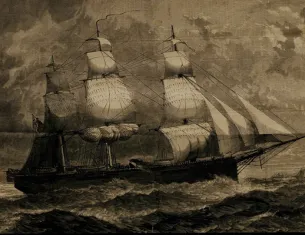Paul Cuffe

Silhouette of Paul Cuffee, attributed to Charles Willson Peale, ca. 1811. (The Historical Society of Pennsylvania)
Paul Cuffe, or Cuffee, (1759–1817) was a sailor, businessman, and abolitionist from Massachusetts. His mother was a Wampanoag Indian and his father was a formerly enslaved West African. Cuffe took his surname from his father’s first name, Kofi.
During the American Revolution, Cuffe was taken off a blockade-running American ship in 1776 and held as a British prisoner of war for three months. In 1780, as a black man who could not vote, he refused to pay taxes without representation and was briefly imprisoned. After the Revolution, Cuffe gradually built up a successful Nantucket-based shipping and trading business, crewing his ships with Native American and black sailors. He became one of the wealthiest and most successful men of color in America. When he died in 1817, his estate was valued at more than $20,000 and included several properties and business concerns.
A devout Quaker, he became active in the abolitionist movement. Inspired by British abolitionists who had established Sierra Leone as a colony for freed slaves, Cuffe began to recruit African Americans to emigrate to Africa and, in 1815, led a small group to Freetown, Sierra Leone. He traveled the East Coast building up support for Pan-Africanism and colonization, but died in 1817 before he could advance his plan.


